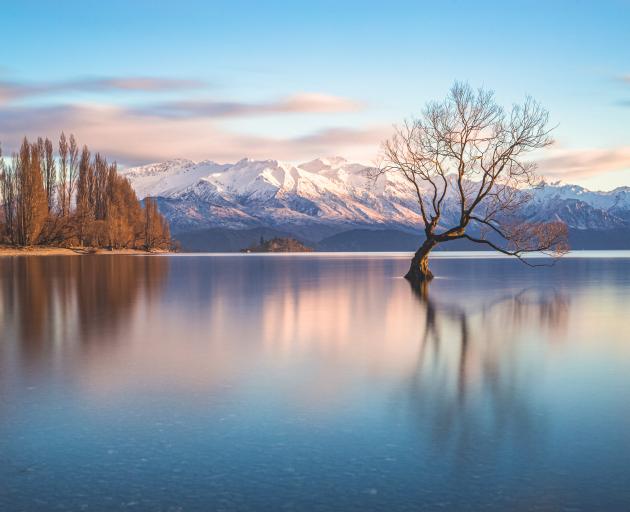
Associate Prof Marc Schallenberg spent nearly three decades studying what he called the region’s "great lakes" and he has spent the last several years trying to raise the alarm to protect them.
In 2017, as a keynote speaker at a meeting at the Lake Wanaka Centre, Prof Schallenberg told a crowd of more than 200 people a concerted research effort was needed to understand how vulnerable the large lakes were to the many pressures they faced.
Until now, the issue of protecting Otago’s pristine, but deteriorating, alpine lakes appears not to have gained any traction.
"The big challenge with trying to raise the alarm about these lakes is that they aren’t in a completely degraded state, whereas a lot of the lakes in New Zealand already are.
"It’s easier to get attention when you have pictures of dead fish, algal blooms and people saying, ‘This lake is completely stuffed.’ Compared to what I was trying to do which was raise the alarm about these relatively pristine lakes.
"They’re actually such high value lakes - they’re world class lakes, they’re iconic - and they have huge economic importance, but also a spiritual and cultural importance as well."
Are lot of people were beginning to show interest, but they were still in the alarm raising phase, Prof Schallenberg said.
The Otago Regional Council has begun to pursue a new lakes strategy, with an eye to their protection.

But the council broadly endorsed Dr Robertson’s call for a multi-year, multimillion-dollar government investment in Lake Wanaka, Lake Hawea and Lake Wakatipu.
Interim chief executive Pim Borren approached the Ministry for the Environment about the possibility of future funding assistance for the council’s new lakes strategy project.
Council chairwoman Gretchen Robertson said the council’s newly formed lakes working group would meet for the first time next week.
Prof Schallenberg said there was a degree of urgency - lake deterioration happened exponentially, it started slowly and then got out of control.
With increased stocking rates due to the tenure review process, urban development increasing in the lakes area, and climate change effects becoming more obvious, the pressure the lakes were under was becoming more clear.
His own bid for a three-year, $3.5 million government-backed work programme did not get picked up by the Ministry of Business, Innovation and Employment when he pitched it last year, but he continued to endorse the work he outlined in his proposal.
The regional council had only been collecting "good data" on the lakes since about 2015, but it showed phytoplankton biomass had doubled in the past five years.
The lakes were not easy to monitor; they were massive, "super deep" lakes that needed an entirely different approach from smaller lakes closer to the coast.
Without a better understanding of the stresses they were under or the functioning of the lakes themselves, knowing how to manage the problem was difficult, he said.
Prof Schallenberg’s proposed approach included separate research into the effects of climate change; algal growth, including in-lake nutrient cycling; food webs, and productivity hotspots; and management - monitoring with satellites, eDNA, and citizen science.
He also believed restoring connectivity to the lakes, allowing for eel recruitment up the Clutha River, would be an important indicator of the "ecological integrity" of the lakes.












